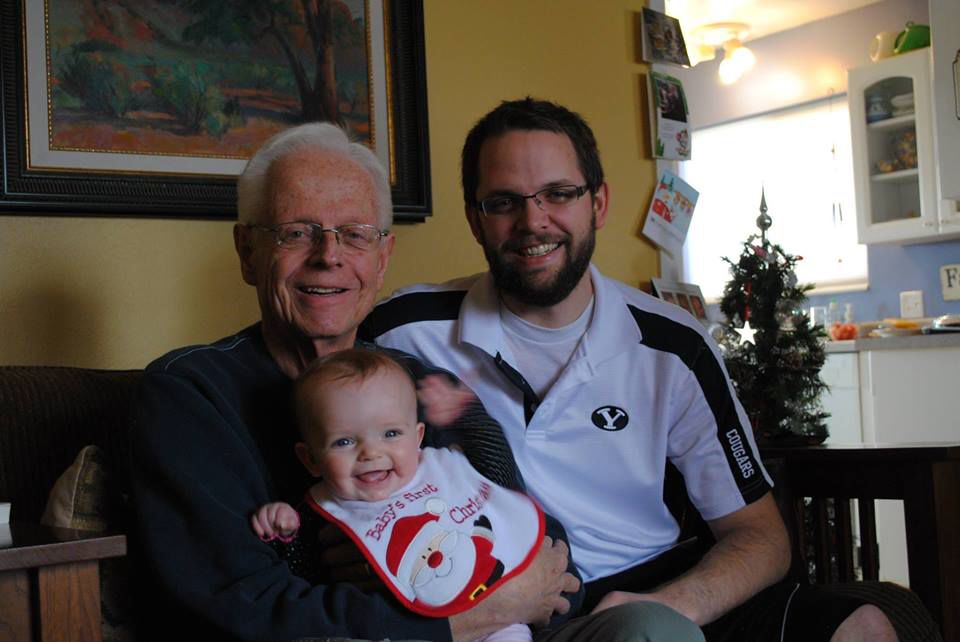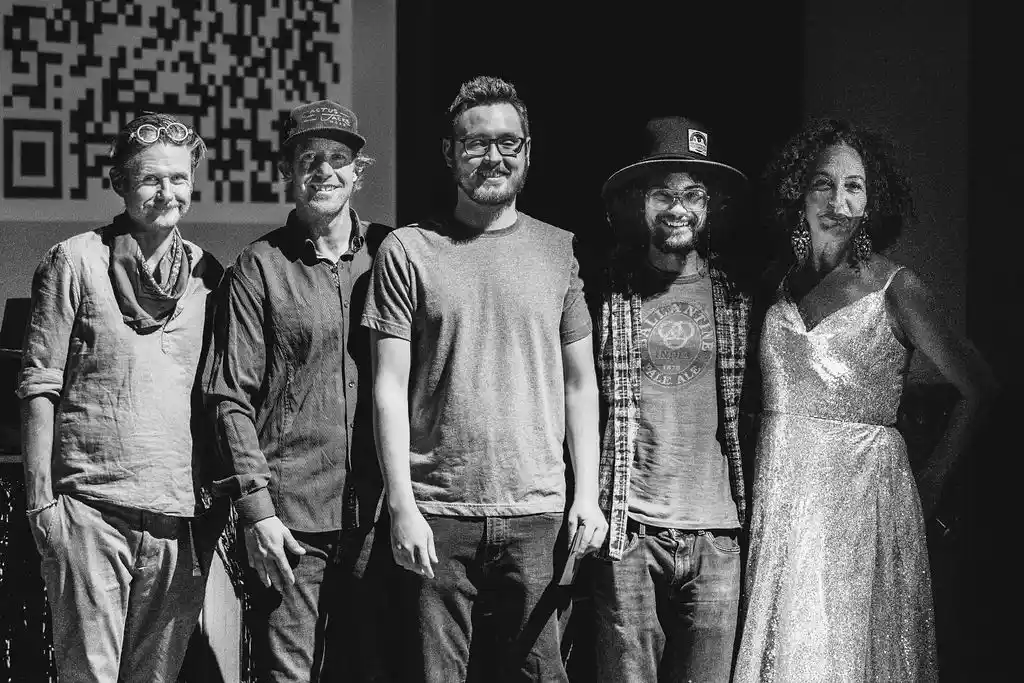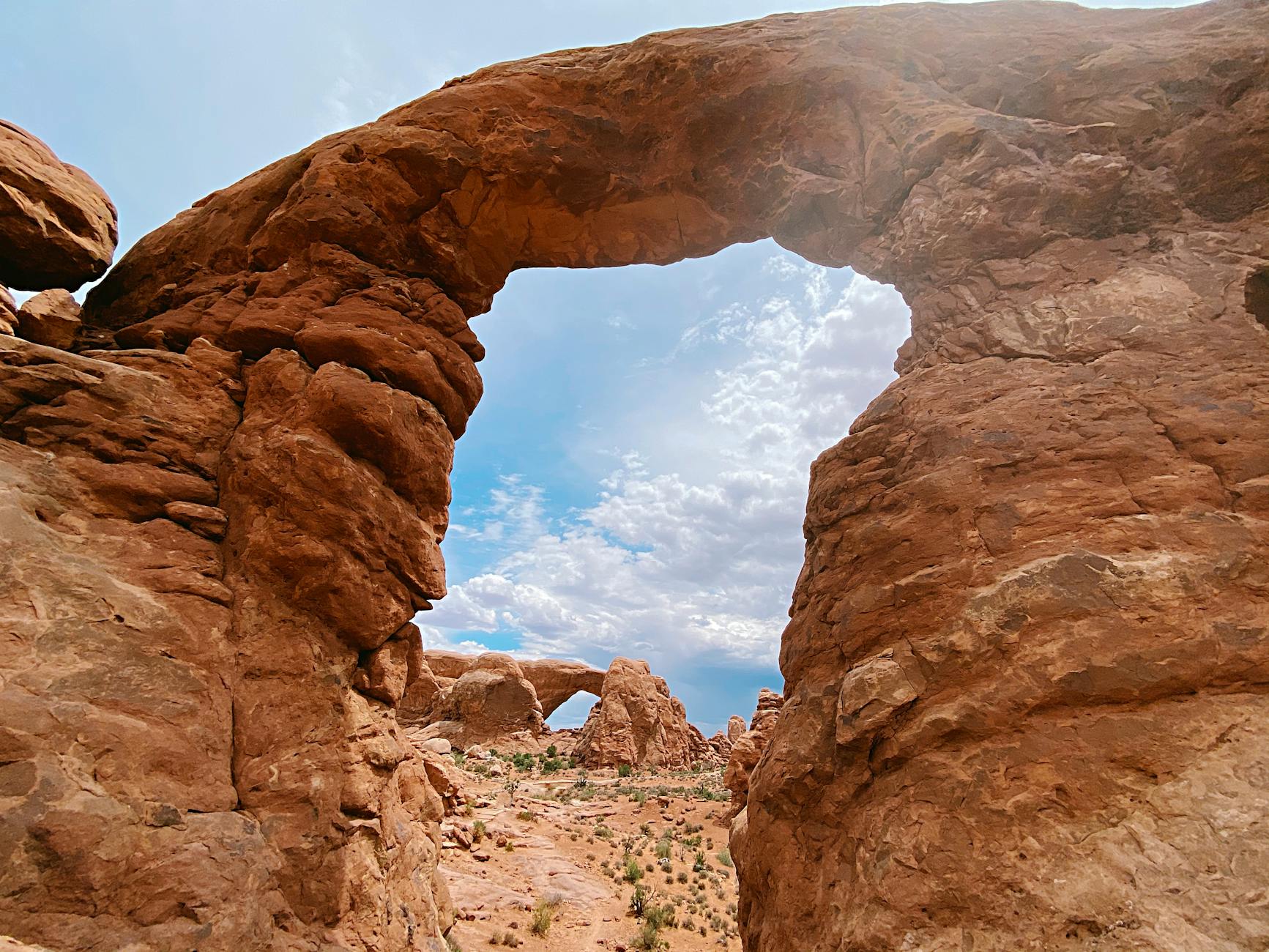Southeastern Utah lost one of its greatest voices last week.
KCYN General Manager Phil Mueller passed away peacefully at his Blanding home on Wednesday, May 18, following a five-and-a-half-year battle with cancer. He was 72.
Doctors first diagnosed Mueller with stage-four colon cancer in March 2011; at the time, they told him that he had six months to a year to live – perhaps slightly longer if he fought it.
“He fought it,” longtime friend and KCYN colleague Dan Mick said.
The inaccurate prognoses kept coming, and Mueller kept fighting until the end. More than a month ago, Mick said, a doctor said that Mueller had just a matter of hours left.
Mueller worked a demanding schedule of 14- to 15-hour days, and Mick said he believes that his friend’s devotion to KCYN and its listeners kept him going.
“Had he not had the radio station and the people in Moab who loved him, he would not have survived,” Mick said. “The radio station was his drive.”
A typical day in Mueller’s life began long before most people wake up: Inclement weather or not, he set off on the first leg of his commute from Blanding to Moab between 2:30 and 3 a.m.
“Not everybody would do that, but Phil would,” former KCYN manager Deston Rogers said. “He had a job to do, and he did it.”
Once Mueller was on the job, Rogers said, he did not confine himself to his office: If there were any problems with the station’s equipment in the La Sal Mountains, for instance, Mueller would head up there and check everything out.
He continued to stick with his demanding work schedule even as the cancer spread and he suffered a major setback in February, when he came down with potentially life-threatening sepsis.
After he recovered from that illness, Mueller was back on the job until Monday, May 2 – the day before he was planning to leave for a two-week trip to Grand Island, Nebraska, where pioneers in his family homesteaded.
“He wanted so badly to go back and do some genealogy,” Mick said. “It’s the first vacation I can ever remember him planning.”
But his health took a turn for the worse that day, and instead of setting off on his vacation, Mueller’s battle moved behind the lines, his wife Lou said.
From Minneapolis to Moab and beyond
Philip Robert Mueller was born on July 1, 1943, in Minneapolis and grew up in Denver.
He was bitten by the broadcasting bug at an early age, and was still in high school when he began to work part-time at three radio stations. He landed his first “real” job at KLAK Radio in Lakewood, Colorado, where a disc jockey introduced him to the basics of his profession. Mueller was hooked instantly.
During an illustrious career that followed over the next half-century, Mueller’s resume expanded from broadcaster, reporter and correspondent to news editor, news director and operations manager.
As a young man, Mueller interviewed Dr. Martin Luther King Jr. – a bit of historical trivia that some of his friends knew nothing about, until his son Mark recently posted a striking photo of the two men on his father’s Facebook page.
“What an opportunity for somebody like Phil,” Rogers said. “He was just coming up and starting out in the business … and to be able to interview somebody of that magnitude – not just in the States, but on the world stage …”
When he was on the job covering race riots, someone – possibly a white supremacist – hit his head with a rock, and he woke up later in the hospital.
“Somebody nailed him – they could have killed him that time,” Mick said.
They didn’t, and he went on to serve as an information specialist in the Air National Guard, joining the 120th Tactical Fighter Group in 1966.
Less than two years later, his unit was activated when the North Korean military seized a U.S. Navy intelligence vessel in international waters off its coastline. The “Pueblo Crisis” continued for 11 months until the North Korean government finally released the ship’s 80-plus crew members.
Mueller spent the next two years at the 5th Air Force headquarters near Tokyo; he was honorably discharged from the Air Force Reserves in 1972.
Flashing forward from the tumultuous 1960s to the conservative 1980s, Mueller’s time as the program director at a radio station in Kansas City, Missouri, overlapped briefly with a then-unknown Rush Limbaugh’s equally brief stint there.
Soon afterward, Mueller’s family-owned corporation bought Blanding radio station KUTA-AM, “The Voice of the Canyonlands.” In the 15 years that followed, he never missed a city council meeting.
But the station never turned a profit during that time, and KUTA’s staff dwindled over the years. By the time that it finally went under in the early 2000s, Mueller was the only employee left on the job.
In a 2002 interview with the Deseret News, Mueller lamented that rural broadcasters were going the way of small family farms, mom-and-pop grocery stores and other small businesses in the U.S.
Fortunately for Mueller – and for Moab – an advertising position soon opened up at KCYN/ KCPX, and not long afterward, he replaced Rogers as KCYN’s manager.
“He took off and ran with it and brought the station to where it is today,” Rogers said.
Beyond southeastern Utah, Kansas City and Denver, Mueller also worked at major market stations in Salt Lake City, San Antonio, as well as the Bonneville International News Bureau in Washington, D.C.
His experiences and the lessons he learned while working in the nation’s capital made him a unique asset in small and isolated markets like Blanding and Moab, according to Rogers. He remembers his friend for his professionalism and the way he conducted himself during his interviews.
“He took all that big market stuff and brought it to a small area,” Rogers said. “He had that expertise.”
Rogers said he took a liking to few other people in the broadcast industry. Unlike Mueller, he said, only a minority of them ever develop a “true, true interest” in the communities where they work.
“When it comes to a small community like Moab or Blanding and Monticello, not only would he involve the community in what he was doing, I learned that he was really active in the community as a station manager and as a citizen,” Rogers said.
Over the years, Mueller crossed paths with other regional figures in the industry, including KSL-TV senior correspondent John Hollenhorst, who remembered Mueller as a role model at the start of his career.
“He was a fine man, a great newsman and a heck of a good guy,” Hollenhorst said in a brief tribute to Mueller. “My life is much better for having known him.”
Phil Mueller, Citizen of the Year
Five years ago, Mueller was on air seeking recommendations for Moab’s 2011 Citizen of the Year when Mick came up with a novel suggestion: Phil Mueller himself.
“I went down to him and submitted his name,” he said.
Although he didn’t live in Moab, that didn’t matter: Mueller won the honor, and some listeners may have been none the wiser that he wasn’t actually a resident.
“I don’t know if many people knew he commuted 72 miles each way to work every day,” Mick said.
However, Mueller remained actively involved in the community, joining the American Cancer Society’s Relay for Life since the fundraising event first launched in Moab about 10 years ago. He used to walk laps all night long, when the relay would for last 12 hours, from 6 p.m. to 6 a.m.
Throughout his battle with cancer, Mueller traveled to the Huntsman Cancer Institute in Salt Lake City for medical treatment, and Mick said his friend thought of his predicament as a blessing, in the sense that he forged new friendships there.
“(He said), ‘I got to meet so many wonderful people I never would have gotten to meet,’” Mick said.
He held the thousands of other people he befriended over the years in the same regard, according to Mick.
“He was an incredible friend to everybody,” he said. “He didn’t meet anybody he didn’t like.”
From the smallest problem to the biggest concern, Mueller was always there to help others, Rogers said.
“He was a compassionate guy,” he said.
Friends and family members also remember Mueller as the “ultimate optimist.”
“Phil never complained about his ailment,” Mick said. “Phil never let you know when he was hurting.”
Mueller’s wife Lou, whom he married in 1979, said her husband would want everyone to know how grateful he was for their love and support over the years.
“He would want you to get a regular colonoscopy,” she added. “He would want his experience to help others. He would want you to live life to the fullest, the way he has.”
In addition to his wife, Mueller is survived by his children: John Mueller (Alison); Jeff Hart (Jen); Adam Mueller (Heather); Elizabeth Weilenmann (Brandon); Rebecca Mueller Kirby; Mark Mueller (Cassie); and 27 grandchildren. He was preceded in death by two daughters, Stacey Mueller Call (Dave) and Jennifer Hart; and one daughter-in-law, Lisa Mueller (John).
His friends and family members attended Mueller’s funeral and interment in Blanding on Tuesday, May 24, and Mick took pains to note that it would be a celebration of Mueller’s life – not a mourning of his loss.
“We haven’t lost him,” Mick said. “He still walks with us every day.”
Mueller was a member of the Church of Jesus Christ of Latter-day Saints, and he believed that people will be resurrected, no longer subject to disease of death.
“We’re all going to miss him, but he’s waiting for us on the other side,” Mick said.
Phil Mueller had decades-long career in broadcasting
He was an incredible friend to everybody … He didn’t meet anybody he didn’t like.





